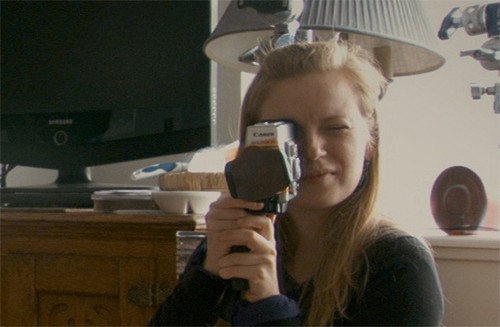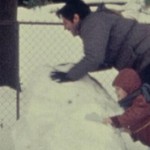Produced in collaboration with the National Film Board of Canada, Canadian director Sarah Polley’s documentary Stories We Tell is a tender and often moving inquiry into the life of her mother Diana who died in 1990 from cancer when Sarah was only eleven years old. Her investigation, consisting of interviews with her Toronto family members aided by Super-8 home movies (60% of which are recreated using look-alike actors), uncovers family secrets that slowly begin to be revealed during the course of the film. Sarah not only directs the movie but also conducts the interviews with the storytellers that include her father, siblings and half-siblings, and close friends of her mother who all share their memories of Diana and what she meant to them in their lives.
Though Sarah does not share her own feelings or thoughts, she does acknowledge that her bond with Michael and her four siblings grew closer after her mother’s death. Polley comes from a family closely associated with the theater. Her mother was an actress as was her father Michael, who narrates the story from his written account of his memories. Family members are asked to “tell the story from the beginning until now,” and they relate their recollection of Diana and how she affected their lives, their stories filled with emotion and sometimes tears. As the storytellers go on, it becomes clear that Diana was a free spirit who was a more complex person than at first imagined.
Everyone’s memories of Diana and the details of her life are somewhat different but, on the whole, they complement each other, each providing one more piece of the puzzle. One interesting aspect of the story is the long term close relationship Diana had with film producer Harry Gulkin, a former union organizer and left-wing activist, and how the consequences of their affair strongly impacted Sarah’s life. Though Stories We Tell talks about their affair as one that stemmed from Michael’s inability to satisfy Diana on many levels, we do not really know Diana’s own thoughts and feelings on the subject.
As far as Gulkin is concerned, he does share his point of view but lets it be known that he is uncomfortable in the context of the film and that he feels the story should be his alone to tell. Although it may go on a bit longer than necessary, Stories We Tell is never less than fascinating and is especially noteworthy for its refusal to engage in mawkishness or sentimentality. Though there are differences in interpretation among the storytellers, the fact that Sarah’s family remains supportive of each other after all the years is a testament to their resilience and mutual respect.
Stories We Tell underscores the point that it is difficult to separate what actually happened from the story we tell about it, our interpretation of the event. What is not said, however, is that over time, the story may become the only reality we know. When that happens, we no longer have a story, but we become our story, a position that severely limits our ability to grow. Perhaps the film’s greatest contribution is to suggest a process that other families can use to look at how their interpretations often get in the way of acknowledging the simple truth of what happened and allow them to see events in their life from a broader perspective.






'Movie Review: Stories We Tell (2012)' has no comments